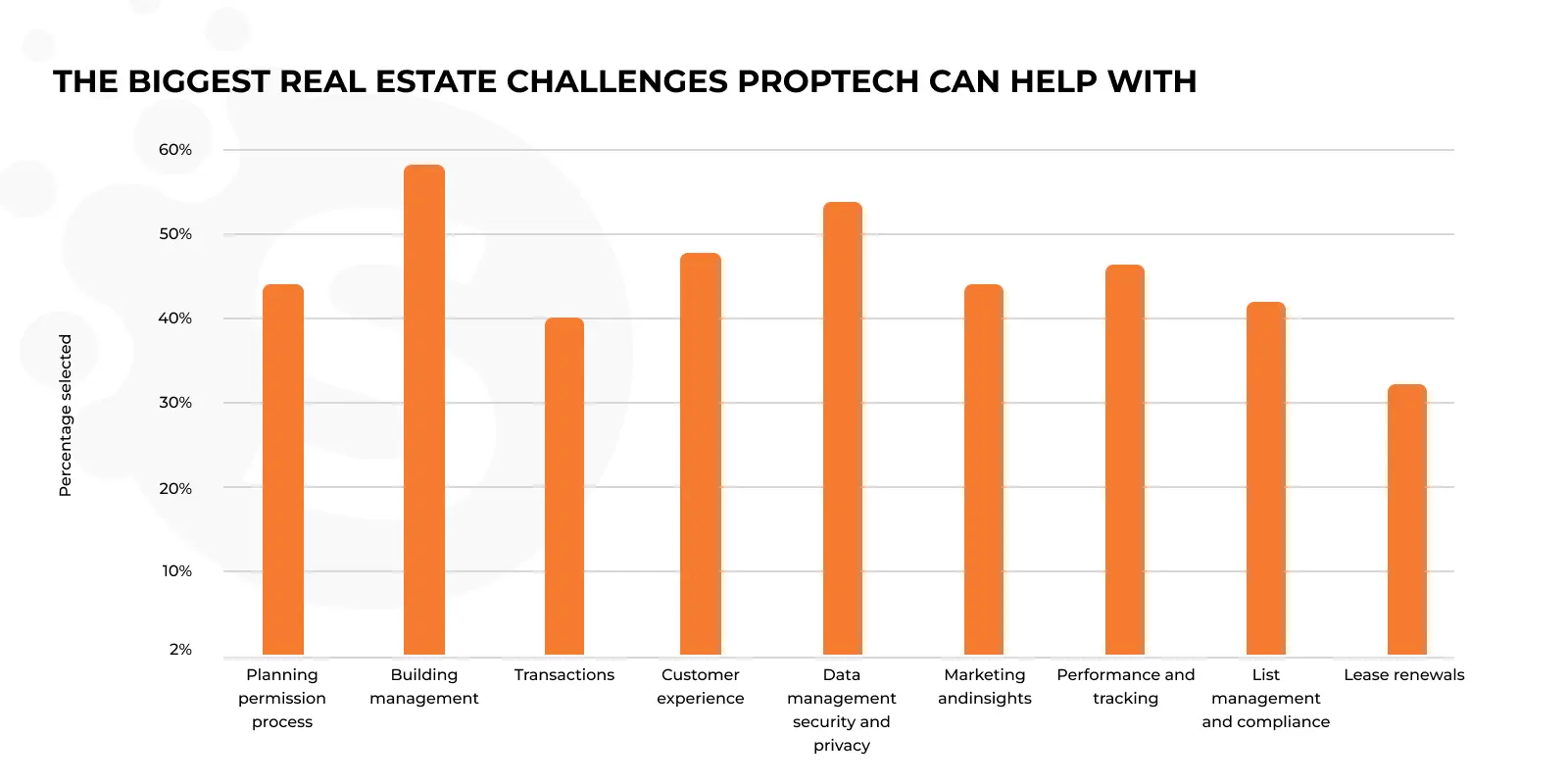Real estate technology has been rapidly evolving in recent years, and the introduction of cutting-edge technologies in real estate promises to change the way business is conducted in this age-old industry. The real estate market is a major component of the world’s economy, with a global value of over $7 196 billion.
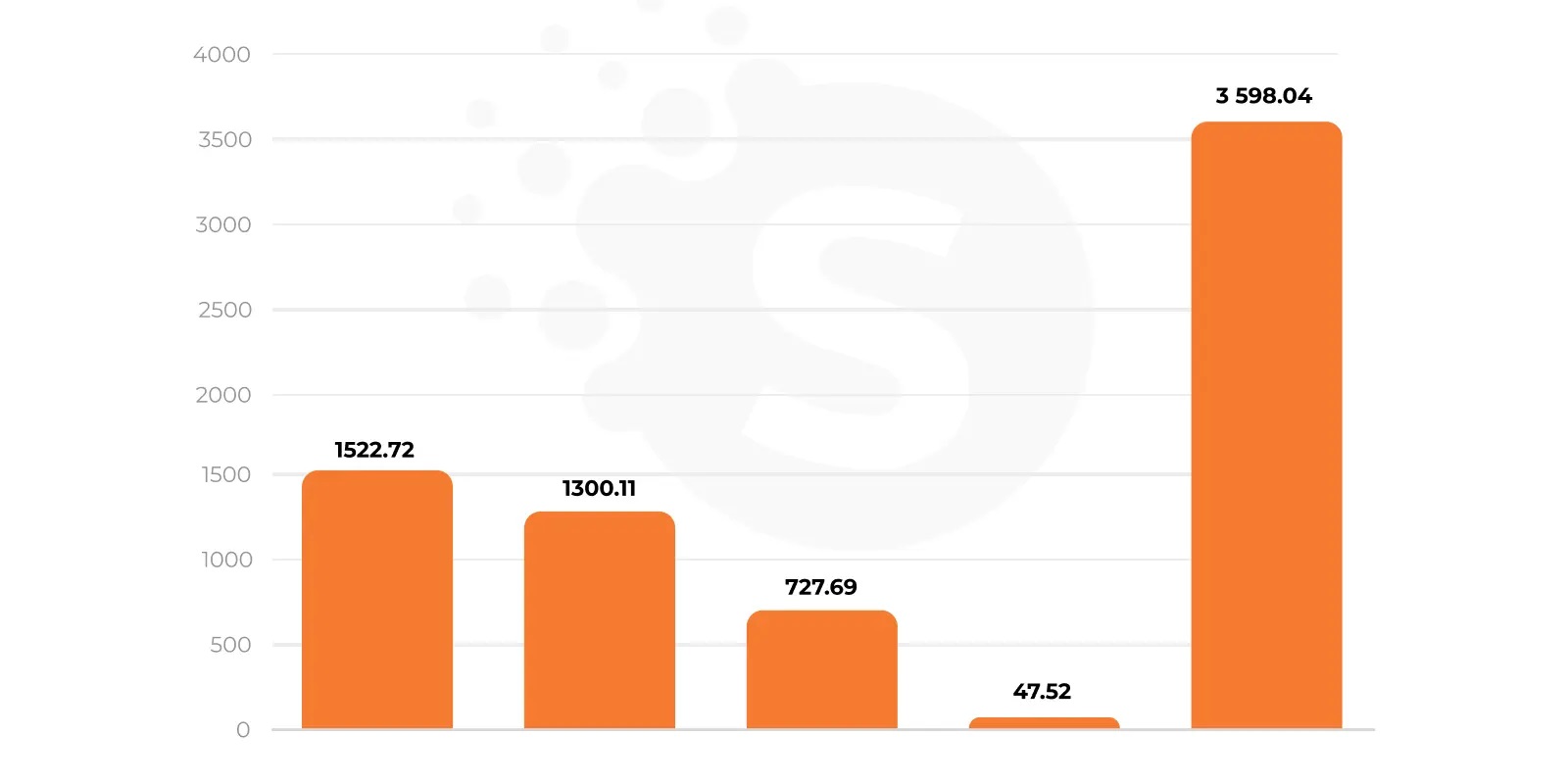
In some respects, the adoption of technology in real estate has lagged behind its use in other business sectors. It was partially due to a reluctance to change methods that had worked well in the past. Another factor that slowed down the widespread use of real estate technology was major players’ attempts to develop proprietary real estate technology tools.
But now, these issues are fading, and the market has seen an increase in real estate tech in recent years.
Moreover, the industry players are starting to understand the benefits of investing and using modern technologies. According to the Technology and The Future of Real Estate Investment Management report created by the University of Oxford, in 2020, 53% of digital real estate companies are now directly investing in technology. 42% of Statista respondents confessed they see potential in Smart Building technologies, while 56% of respondents have already noticed the impact from the tech sphere.
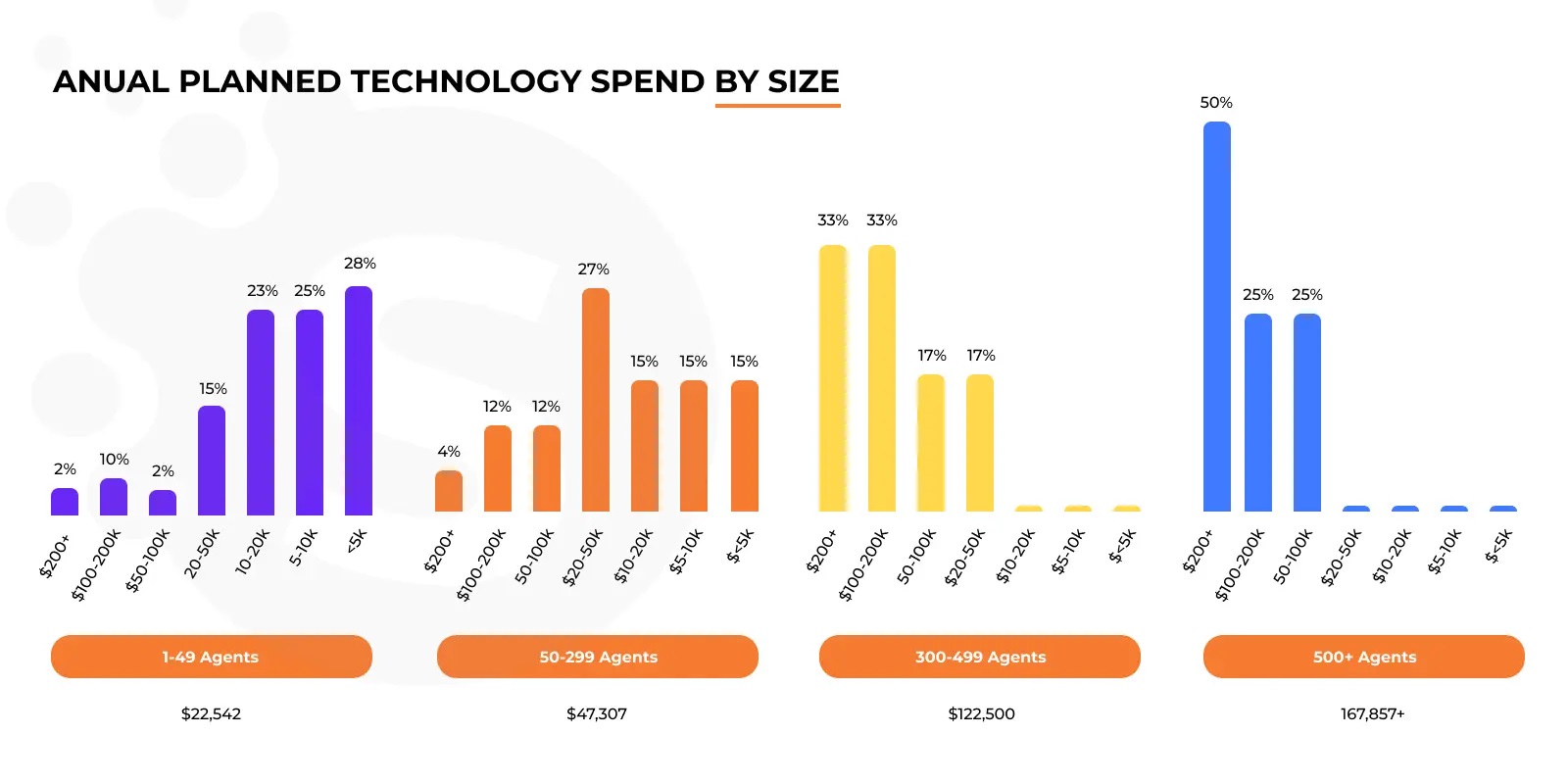
It is poised to see even more growth in how new technologies are genuine real estate disruptors and will affect everyone involved in the industry.
What Is Proptech: Industry Overview
Proptech is a rather amorphous term that is formed from the words property and technology. It encompasses the various solutions that are involved in the growth of commercial real estate software.
Proptech is also known as CREtech for commercial real estate technology or REtech for real estate technology. It usually refers to the software employed in real estate tools and applications.
Six months through 2021, VC deal activity in residential real estate tech has already reached an annual record of $6.2 billion, according to PitchBook data. And with $2.6 billion in funding, the commercial segment is on track to make 2021 the second-most valuable year for venture activity.
The industry shows no signs of slowing down with new generations of consumers and realtors opting for smart solutions that facilitate faster rentals and more convenient living arrangements.
Real Estate Technology Trends For 2023 That Disrupt the Industry
The successful adoption of a specific technology in the real estate industry will be determined by its ability to provide value for its users.
According to the 2021 NAR Home Buyer and Seller Generational Trends report, certain features are important to users. Photos, detailed information, floor plans, real estate agent contacts, and virtual tours are among them.
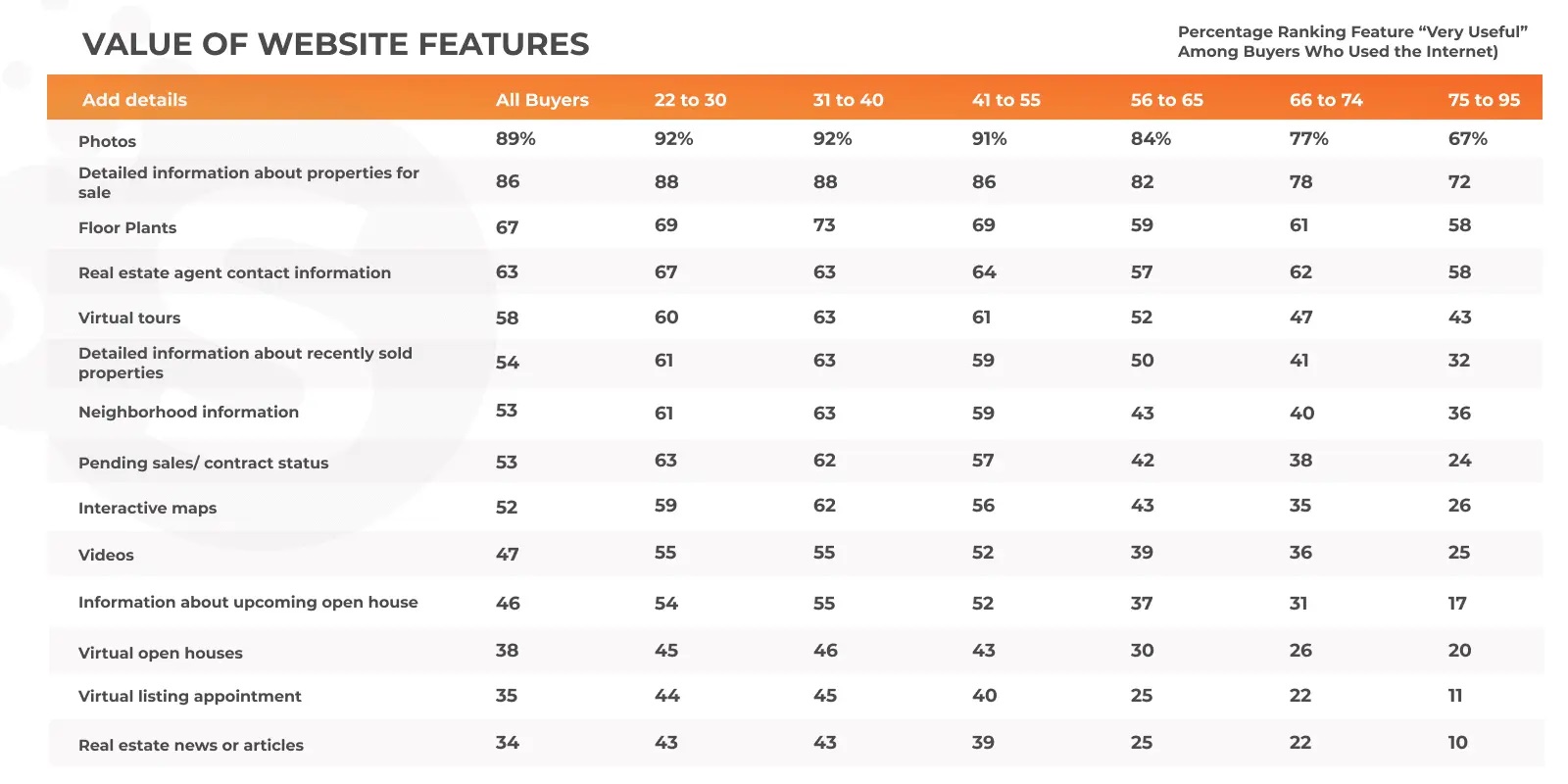
Technologies help to cover the users’ needs and bring them valuable information they use for decision-making.
Automated Rental and Purchasing Property Platforms
This real estate innovation is truly changing the industry. Nowadays, how clients find the new property they bought is changing to the Internet more than meeting with real estate agents.
The 2021 NAR Home Buyer and Seller Generational Trends report states that 43% of all buyers look online for properties for sale.
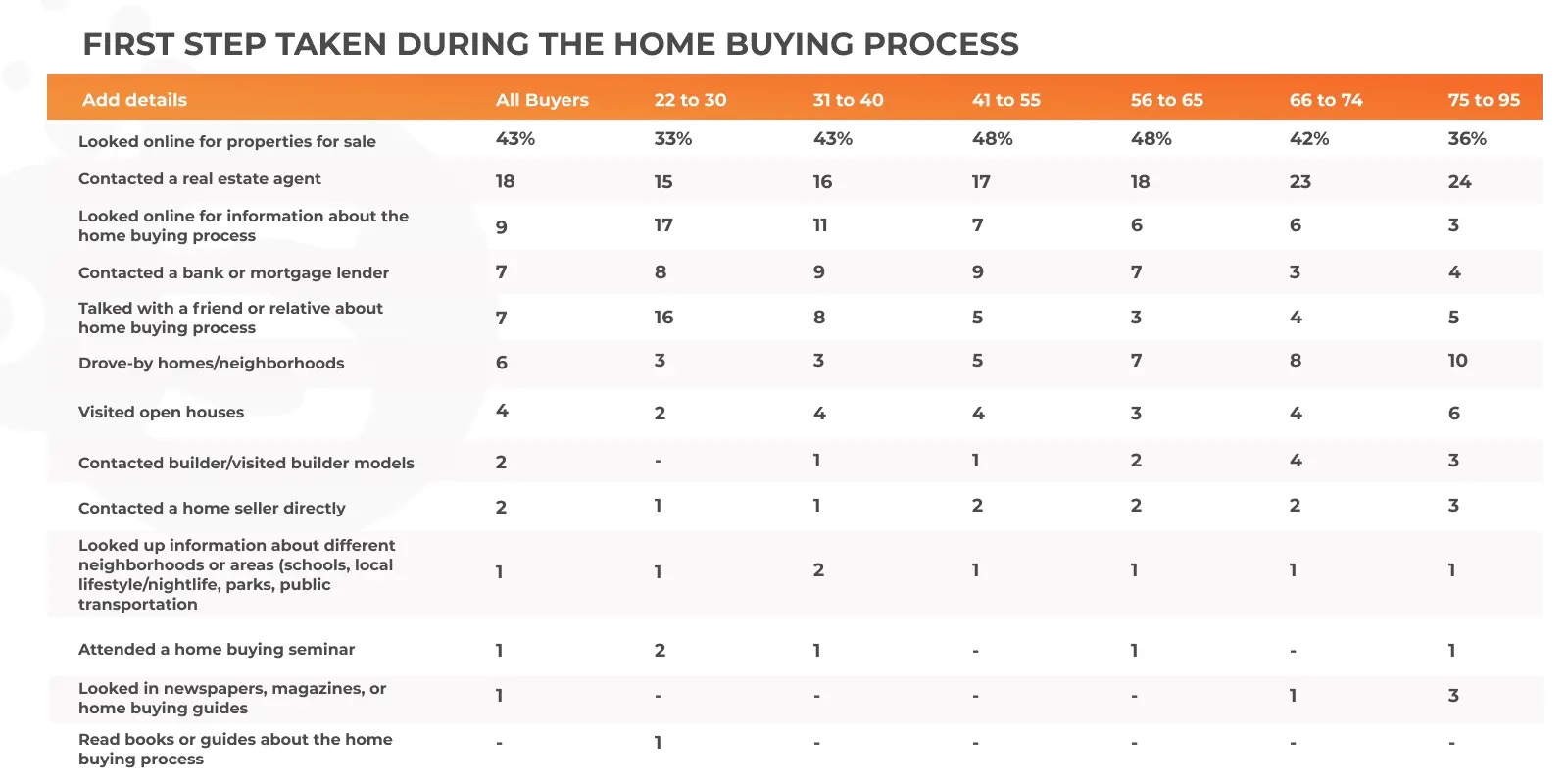
The benefits of using automated property technologies are overwhelming. Consumers and real estate professionals will be at a distinct disadvantage if they choose not to use these valuable real estate technology tools to find or sell a home.
3D Virtual House and Apartment Tours
Closely associated with search applications are solutions that enable prospective buyers to take a virtual tour of properties while selecting. It is among the main tech trends in real estate for 2023 as it eliminates the time and expense of visiting multiple properties, many of which can be removed from the buyer’s list of potential purchases through virtual viewing.
Of course, most buyers will want to tour the property before making a final decision physically. Still, the time and money savings for the customer and real estate agent in determining the best fit can quickly add up. Moreover, today VR technologies allow having almost realistic virtual tours to houses where you can easily examine the property state, interior details, and furniture. And the real estate photo editing services allow to make photos as true to life as possible.
Real estate software customers expect to get the best service and experience from using the technologies. Contact channels must be available 24/7, the response time must be as fast as possible, and the error rate should be close to zero.
An automated service desk with the conversation AI can easily fulfill the requirements. This technological approach goes beyond common chatbots making it one of the main real estate innovations in 2022. According to Deloitte, ‘these assistants would be built for purpose, have a rich set of capabilities, and be integrated into the end-to-end process landscape of the enterprise.’
Big data
Databases and data warehouses are used to store the immense quantities of information that is gathered concerning consumer preferences.
According to McKinsey’s research, real estate applications based on machine-learning models can predict changes in rent rate with 90% accuracy, while the changes in other property metrics can predict with 60%. That can pretty well help clients understand what property is a better choice for their investment, as in the case of commercial property and non-commercial.
Blockchain
Tech-savvy readers may not immediately make the connection between blockchain technology and real estate. While many individuals are familiar with how the blockchain is used in cryptocurrency, it has wide applications in other areas of commerce, including the real estate industry.
Blockchain technology can be used to verify encrypted transactions and ensure that no tampering impacts financial records. It will prove useful in fractional property investment and allow landlords to sell portions of their stake in a given holding.
The property technology will also enable important documents such as property titles to be stored securely. As with other market sectors, the surface has only been scratched as far as the potential in employing the blockchain for other cases in the real estate industry makes it one of the top real estate tech trends in 2023.
Fractional Property Investment
Fractional ownership refers to percentage ownership in an asset. It is a common investment strategy when purchasing expensive items such as aircraft or vacation homes. Using the blockchain mentioned above technology, fractional property investment is flourishing for a variety of reasons.
The high price of homes put them out of reach to many would-be buyers. Fractional property investment allows these individuals or groups to build a deposit on a future full purchase.
Communal investors can all share rental income from a shared property, opening up an additional income stream. Employing a fractional ownership approach will enable more diversified investment and allow people to unlock the value in their homes.
Mobile Apps
One of the most efficient technologies used in the industry is mobile, e.g., developing different real estate apps. The most popular ones are rental and purchasing mobile platforms.
These apps offer several advantages to potential renters over the traditional means of locating an apartment or house. Databases are frequently updated, providing more timely information on new properties put on the market and those that are no longer available.
Consumers interested in purchasing, selling, or renting a property can also use apps tailored to their needs. They can help you locate the house you want and put you in touch with a real estate agent to help facilitate the deal.
Internet of Things (IoT)
Smart homes, apartments, and devices are changing the way we live in many ways. Smart devices, in general, are powered by the Internet of Things (IoT) and are becoming one of the main property management technology trends.
The IoT refers to the practice of embedding sensors and computing technology into various items with which we interact every day. The ultimate goal of this technology is to provide individuals with a more convenient and pleasurable life.
Let’s investigate in what way IoT technologies are changing our homes and transform them into smart homes. There are three main characteristics of a smart apartment:
-
- Smart amenities include devices such as smart lights and locks and integrated services like home cleaning and package delivery.
- Connectivity is designed into a smart apartment when it is built to enable devices, building systems, residents, and management to communicate. Items such as WiFi, smart sensors, and intelligent access controls are benefits afforded by enhanced connectivity.
- Community management by providing services that save residents time, money, and minor difficulties is the final component of a smart apartment. Built-in event calendars, resident assistance, and on-demand services are some of the features that help property managers and renters build a more vibrant community.
By the way, this is one of the most demanded trends in proptech for apartment websites and real estate platforms. While new construction is prime territory for implementing smart apartments, older structures can be retrofitted to provide the same level of connectivity.
Analytics and data management
Among other tech trends impacting real estate, it is worth mentioning data management. Data will influence decisions, and since there is still no centralized national system for agents, new startups will have unlimited opportunities to develop and change the existing process. Accordingly, now is the perfect time to create an innovative solution in this industry. You can build an application that will analyze a huge amount of data to provide valuable information necessary for decision-making by real estate market participants. For example, your solution might show the level of reliability of a developer and their buildings.
Digital twins
As more information is made available online, prospective buyers will have more opportunities to study and explore properties. Imagine seeing a 3D digital model of each building when looking for housing. Such applications will make predictions of the critical parameters of environmental conditions that a particular house can withstand (earthquakes, tornadoes, landslides, etc.). Maintain companies will know the current conditions of buildings (existing and potential damage, date, and place of repair) and fire escape plan.
Moreover, digital twins can be useful during constructing houses, which helps the developer understand how safe their project will be. Such applications can prevent the collapse of buildings and use developers’ resources rationally.
Direct digital engagement
More touchless services are offered to end-users, resulting in a safer and healthier process. Traditional procedures, such as in-person home tours, would be automated due to direct digital interaction and disruptive technology in real estate. Buyers and real estate agents will no longer need to travel to every apartment or house to make a decision. Therefore, photos, digital brochures and virtual tours should be of high quality. Thus, people can see each element in detail.
But it’s much more important when, in applications, buyers can look at houses that are still under construction. At the same time, the developer posts photos every month about the state of the future building, increasing its reliability in the buyers’ eyes, thus making direct engagement one of the most popular digital trends in real estate.
Digital Transaction Management
That’s one of the important property technology trends, and we recommend paying attention to it. Buyers and agents value their time. Thus, you can create a solution to remove paperwork and enable signing documents electronically. Consequently, the parties to the transaction can be in different parts of the world and still access the contracts from any device.
Hyper-personalized messages
Among emerging technologies in real estate, this is another very interesting one. Datasets and predictive analytics allow agents to understand their customers better and group them with those who share similar lifestyle characteristics. As a result, agents can now build highly targeted messages and content that target particular audiences. They send emails to describe the housing, the benefits, and the documents needed to conclude a deal. What’s more, agents use Facebook and Instagram to conduct tours of apartments or houses. They can also create their own YouTube channel, where they talk about the latest news on the real estate market, share life hacks in this industry, and much more.
Lead generation and engagement automation
Conversation chatbots powered by artificial intelligence will initiate conversations and respond instantly to inquiries. It will assist agents in capturing, engaging, and qualifying online leads. These bots will also manage the initial stages of working with a potential customer using natural language processing. This technology helps agents be with their customers 24/7 and get new leads they connect with during business hours.
These trends in real estate have been very helpful throughout 2023 and in our view will continue to be relevant in 2023.
Essential Technology for Real Estate Agents
Some technological innovations are equally important to consumers and real estate professionals. Today, real estate agents begin to use specific technology for realtors designed to help them provide services to their clients. Here are some popular real estate agent technology tools that are in use today:
-
- Multiple Listing Services (MLS)
- In-app communication
- Social media
Advertising automation
Ad campaigns for new listings can now be generated automatically by software systems. They can also display ads to the appropriate audiences and include real-time statistics such as views, clicks, and demographics. Real estate agents can understand which housing is best for sale or rent. And accordingly, they concentrate their efforts on the objects that bring them the most profit.
Robotic process automation
Real estate transactions can be challenging to handle, especially when it comes to communication. New technologies are being implemented to fix these issues that allow two groups of users to communicate online. Real-time chat, file sharing, and transaction tracking will also be possible. You can also develop an application where potential buyers can solve some of their small questions using a chatbot, significantly saving real estate agents’ time.
Or, you can create an AI-powered Virtual Assistant solution where a customer interacts with a robot that speaks like a human. This assistant can connect potential clients already with a real agent for deeper discussions of real estate issues. Sensely has done something similar in the healthcare industry (a virtual nurse app).
High-Tech Devices in the Real Estate Industry
The innovative use of new technology in real estate has been incorporating drones into showcasing and selling homes. Here are some of the advantages that drones offer real estate agents and those buying and selling homes:
-
- Aerial photography
- A better view of large properties
- Additional interest in listings
The Future of the Real Estate Technology
Proptech is one of the young industries that is expected to grow dramatically in the upcoming years. As the world population is predicted to double by 2050, the demand for real estate will also double.
Anyway, as the world’s citizens become more comfortable with technology, the possibilities will continue to expand. Since everyone interacts with the real estate industry to some degree, it will impact the lives of countless individuals in the years to come.
Source: softerii.com ~ By: Andrii Horiachko ~ Images: softerii.com

